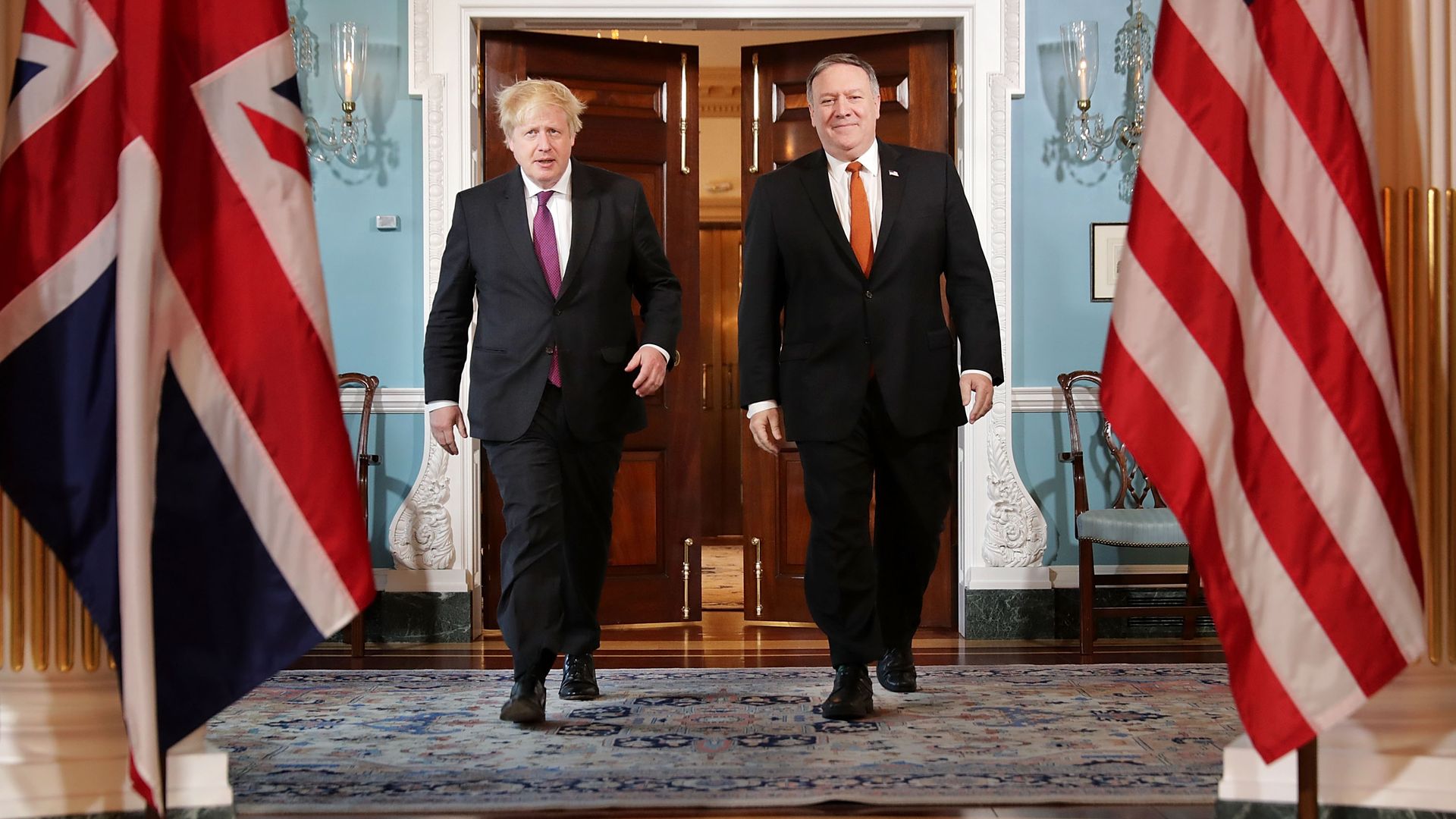Closing arguments on the Iran deal
Add Axios as your preferred source to
see more of our stories on Google.

Boris Johnson and Mike Pompeo today at the State Department. Photo: Chip Somodevilla/Getty Images
We're less than 24 hours away from President Trump's announcement on the Iran nuclear deal, and all indications are that he will throw the agreement into a death spiral by declining to waive sanctions.
Between the lines: This is one of the most significant decisions of Trump's presidency, and key players on both sides of the debate have been making last-ditch attempts to shape it.
- Iranian president Hassan Rouhani said, “If we can get what we want from a deal without America, then Iran will continue to remain committed to the deal," but also warned that leaving would "entail historic regret" for the U.S.
- Israeli Prime Minister Benjamin Netanyahu said, “a deal that enables Iran to keep and hide all its nuclear weapons know-how is a horrible deal,” and insisted the “secret nuclear files” he presented last week contain new and damning information.
- British Foreign Secretary Boris Johnson said on Fox and Friends that Trump’s "Plan B does not seem, to me, to be particularly well developed at this stage,” and the best course is to “work round what we have got and push back on Iran together,” per the BBC.
I asked Jake Sullivan, who as a top aide to then-Secretary of State Clinton was tasked with opening the secret channel with Iran that set the stage for nuclear negotiations, what he would tell Trump if he had two minutes to convince him to stay in the deal.
His bottom line: "Each of the objections to the deal are better dealt with by staying in than by leaving,” and “walking away from the deal means breaking international unity, taking the pressure off Iran and making people go to bed at night in capitals around the world worrying more about Washington than about Tehran.”
- “If we stay in the deal and enforce it, we can build international consensus to go after Iran on all of its other bad behavior — nothing in the nuclear deal stops us from ... imposing economic or military or other forms of pressure on Iran for its sponsorship of terrorism and its malign activity.”
- “Second, if you really want to make sure Iran doesn't start working its way secretly toward a bomb, you need inspectors on the ground. And the only way you're going to have inspectors have access to all of these facilities in Iran is if you keep the deal.”
- “And finally, if what you're concerned with is the out years — 10, 15, 20 years from now when some of the restrictions in the deal expire — well, the United States has a long history of negotiating follow-on agreements,” in particular with the Russians.
I also asked the Atlantic Council's Matthew Kroenig whether there was a policy argument to be made for tearing up the deal now.
- "Iran won't agree to a bigger deal out of the goodness of their hearts," he said, and the U.S. could "be in real trouble in 2025" if Iran ramps up its nuclear program as elements of the deal sunset, with the "international legitimacy" of having complied with the deal.
- However, "nobody [in the Trump administration] has laid out a plan B," he said.
Go deeper: Oil markets brace for Trump's decision, Defining week for the Trump Doctrine, Report: Trump aides targeted Obama alums over Iran deal.
